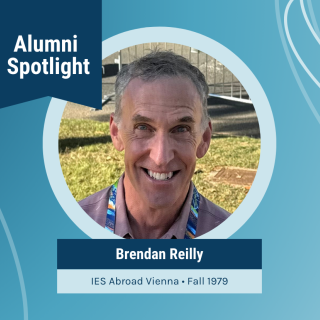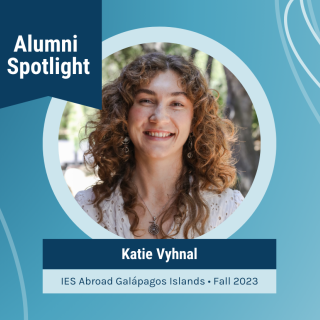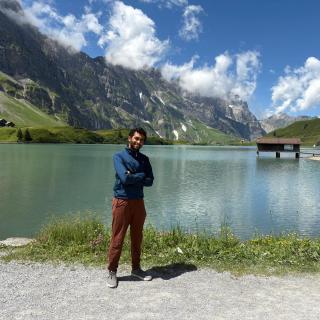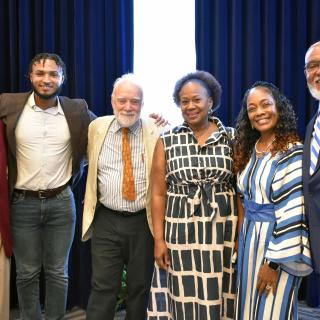Meet Marcus Davis (IES Abroad Beijing, 2005) CEO of Jupiter 20 Ltd., an Urban Planning and Public Policy major who studied abroad in China and returned to the country that sparked his entrepreneurial spirit. Read on to learn about why Marcus credits starting his own business to his study abroad experiences.
IES Abroad: What led you to study abroad in Beijing?
Marcus Davis (MD): I never intended to study in China. I was determined to study in Brazil. A classmate urged me to reconsider studying in China. When I finally sat down to weigh the pros and cons of Brazil and China, I had to admit China was becoming increasingly attractive. With several days left before the deadline, a chance meeting with a Chinese professor who had lived in Beijing as a child eventually swung my vote.
IES Abroad: How did your experiences studying abroad shape your thinking going forward?
MD: Study abroad allowed me to become an entrepreneur. I always had it in my mind that I was going to work for someone, make a bunch of money, and retire. It wasn’t until my first day in China that the idea of “working for myself” really hit me.
Whether or not you agree with one’s perspective, when you study abroad, you begin to realize that there are ways to do things that you otherwise would not have tried if you had not experienced another culture. In this vein, studying abroad tends to have a lasting effect because it teaches you how to adjust your “lens” to empathize with whomever you have a conversation. That empathy goes a long way toward solving real problems in the world.
IES Abroad: Where did your career take you after graduating? How did the skills you developed abroad come into play?
MD: I eventually finished my studies with a graduate degree in Urban Planning and Public Policy. I know it’s a mouthful, but believe it or not, it was one of the best decisions I ever made. It led me to map-making with a commercial real estate company, a consulting job where I applied my skills in finance, data management, information systems, and, most importantly storytelling.
Even though I used many of these skills in a variety of fields while working abroad, I’d say communication far outweighs them all when it comes to living and working abroad. I can’t tell you how many problems or “issues” could have been solved a lot faster if I had known how to communicate in a better way. That said, I think my working abroad in education, automotive, and fashion industries have sharpened my people skills beyond my wildest notions. And it has also shown me that even though it sounds like a cliché, connecting with people is what brings me joy.
IES Abroad: Today, you are the CEO of Jupiter 20. What inspired you to work in China as a trader in the automotive industry?
MD: Jupiter 20 launched in April 2019. We help creatives connect with entrepreneurs to create jobs. It was my manufacturing consulting work with Chongqing InGenius Business that finally inspired me to start my own company. My job was primarily that of a connector. I served as a bridge between technicians and engineers and potential clients. But I have to say that the “trader” aspect of my job was the most interesting as it involved negotiating with clients and customers. I found it fascinating and challenging because it often reminded me of my first day in China. There, I found street vendors willing and ready to do that dance to find middle ground. Sometimes we got right to an agreement and other times we had to just walk away.
IES Abroad: What advice would you give for students considering studying or interning abroad?
MD: I have only two words of advice, break and create. Break: If you are already considering studying or working aboard, then there is a good chance you want to “get away” to experience something new and/or exciting. If you take the plunge, jump in with both feet and remember to take a break. A DEEP break. That is, take some time for yourself. Get completely away from your family, friends, teachers, etc., so that you can hear that little birdie in your ear guiding you. That doesn’t mean enter hermit mode, but it does mean you need to take the time to listen to yourself while you are away. Done well, you’ll begin to hear and feel a clarity of purpose.
Create: Don’t wait until you graduate to create something truly unique. Heck, don’t even wait till you leave home for your destination. Do. It. Now. You’ve already spent years observing and learning; now is the time to make something and to give back. It doesn’t matter what it is: blog, video, art, music, shoes, clothes, etc. Whatever it is, when you finish it, give it away, freely. And expect nothing in return. If you do this, that confusion about what do with your life will slowly fade away.
IES Abroad: Did you have a new outlook on life as a result of your study abroad experience?
MD: Sure. When I was younger, maybe about eight years old, I remember seeing this homeless guy sitting outside of a grocery store, begging for food. The store was closed, and yet he was still there asking for food. I remember distinctly asking myself how can this be? Why is he here? Does he have a home? But the biggest question I had was how a man could starve outside a place that was full of food? For some reason, these questions have always stuck with me.
I have since lived and worked on three continents and can tell you that I still don’t have definitive answers to those questions. I will say, however, that studying and working abroad has helped me look at those questions from multiple points of view. Not only that, I can communicate ideas and solutions related to homelessness and hunger in multiple languages.
This is significant because being able to see the world from angles that are unfamiliar to me gave me a great sense of perspective. Empathy was a foreign concept to me before I went to study abroad. It wasn’t until I spent time abroad that the reality of other people speaking different languages, abiding by different rules, and responding differently to common problems truly hit me. In other words, the experience completely shattered all my misconceptions and biases about how “those” people live.
The experience caused me to rethink my core beliefs about people and why they do the things they do. Especially what I thought about that man outside that grocery store. For the first time, I could imagine myself in his shoes, how he felt, what he was thinking, and maybe how he got there. I could imagine new ways to look at homelessness and hunger. I could ask different questions. I could finally begin to look at many ways I can contribute to eradicating these issues. And not just from my biased point of view, but also from the perspective of people who speak different languages and live in extremely dissimilar cultures.
IES Abroad: What was your ‘aha moment’ when you realized you would never be the same again because of this study abroad experience?
MD: I remember the day I arrived in China. It was late at night and we were exhausted from the 14-hour flight from Chicago to Beijing. We arrived at the hotel exhausted, unpacking our bags and dying to get to sleep, but we couldn’t sleep. We decide to try to get something to eat by ourselves. No maps. No language training. No Help. We walked, and walked, and walked, until 20 minutes later, we were outside the campus, turned right and, OMG! They are selling everything everywhere as far as we could see in both directions: street vendors and hundreds of restaurants and stores. We walked a few feet and stopped where a street vendor was selling little buddhas.
Of course, I had to get one. And so, the “finger ballet” began. Point to what you want and stare at the vendor. He then shows you how much with his fingers. He says 25, I say 10. He says 20, I say 12. He says 18, I say 15. We settle on 15 and gives me what I think is a congratulatory smile.
As we are walking away, we can see many vendors setting up shop as the sun is coming up. Mind you, it’s about 7:30-8 in the morning, and already, the streets are packed with people. I haven’t been here for eight hours and then it hits me — my “a-ha” moment. Everyone here is an entrepreneur, or at least trying to be. It seemed that it didn’t matter what you were selling as long as you trying to figure out a way to make money. To earn a living.
Back home in Chicago where I grew up, we had some vendors and store owners, but I was never fully introduced to entrepreneurial possibilities and opportunities. Or, more importantly, the entrepreneurial mindset. The idea that I could create systems, services, and products for people instead of just working for people who do…never crossed my mind. Then I began to think if this is true, what can I do?
I am now revisiting the questions of my childhood. Questions of homelessness and hunger. But this time it’s with that same entrepreneurial spirit that hit me on my first day in China.
Learn more about studying abroad in Beijing, and check out all of our Alum of the Month profiles to see real examples of how study abroad changed the lives and careers of our former students. To help more students like Marcus receive the option to study abroad, you can support our scholarships.





